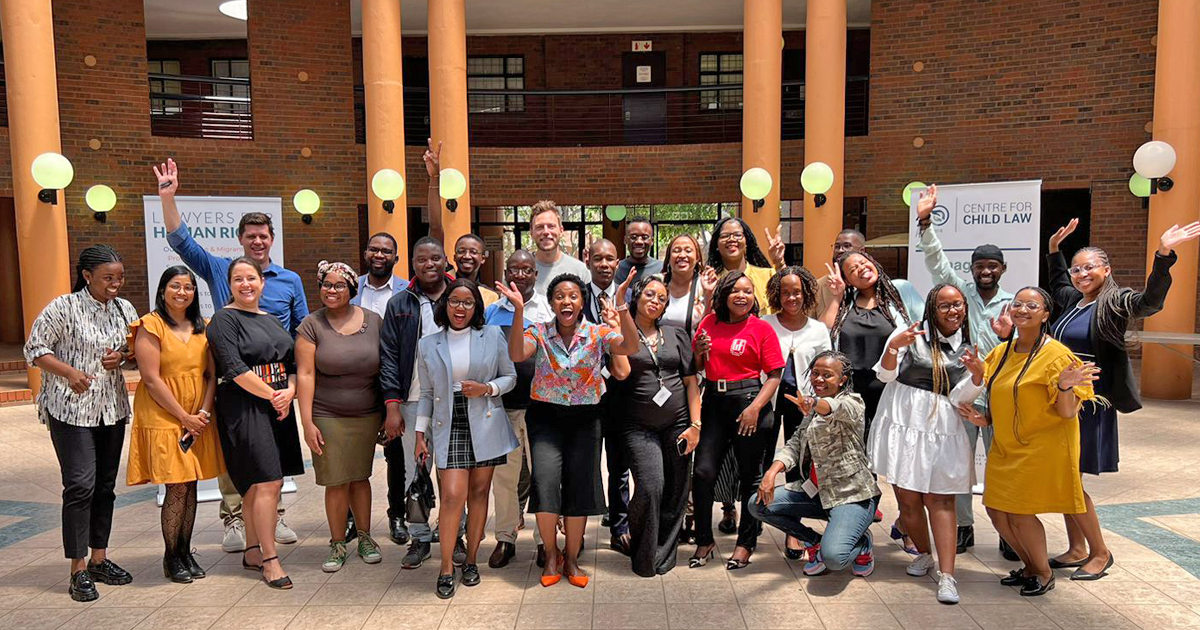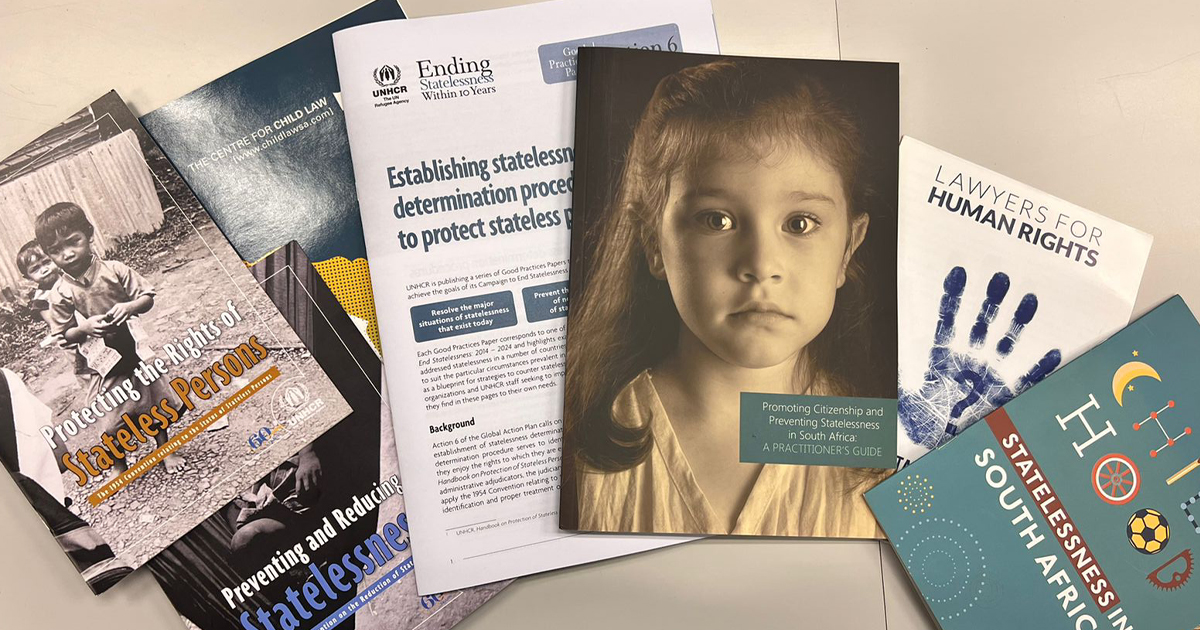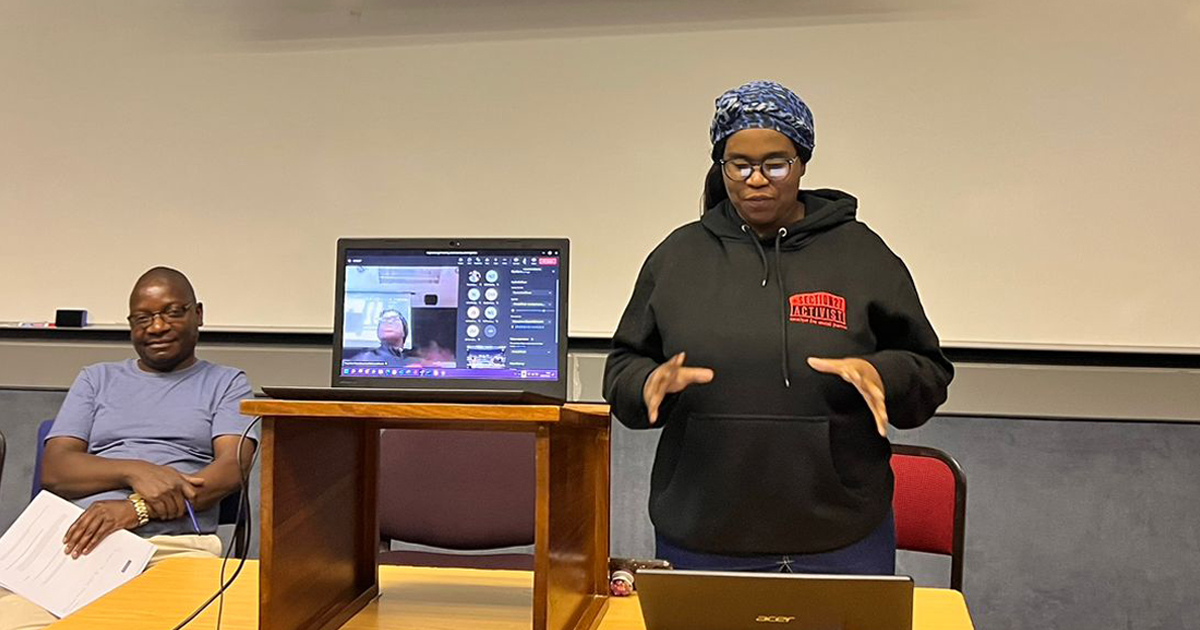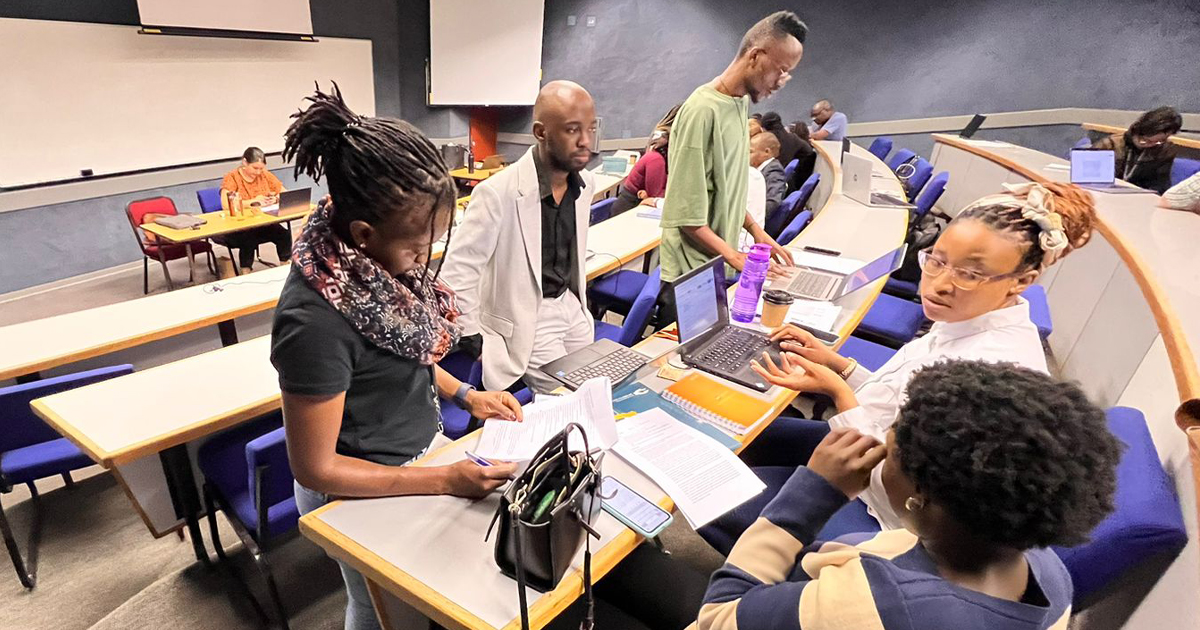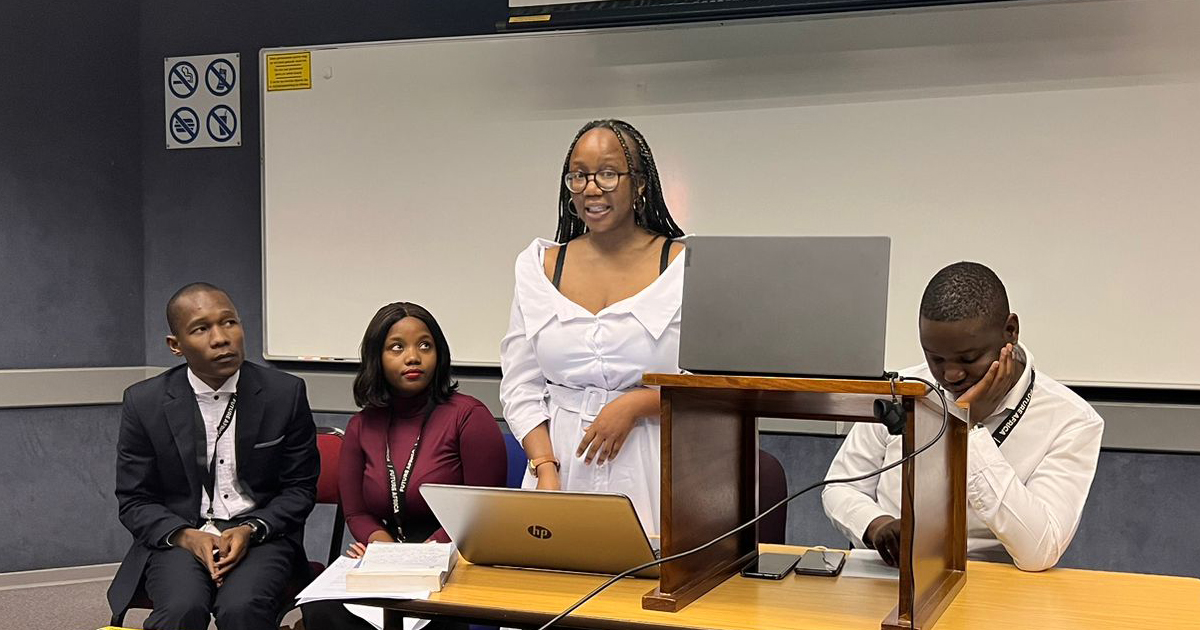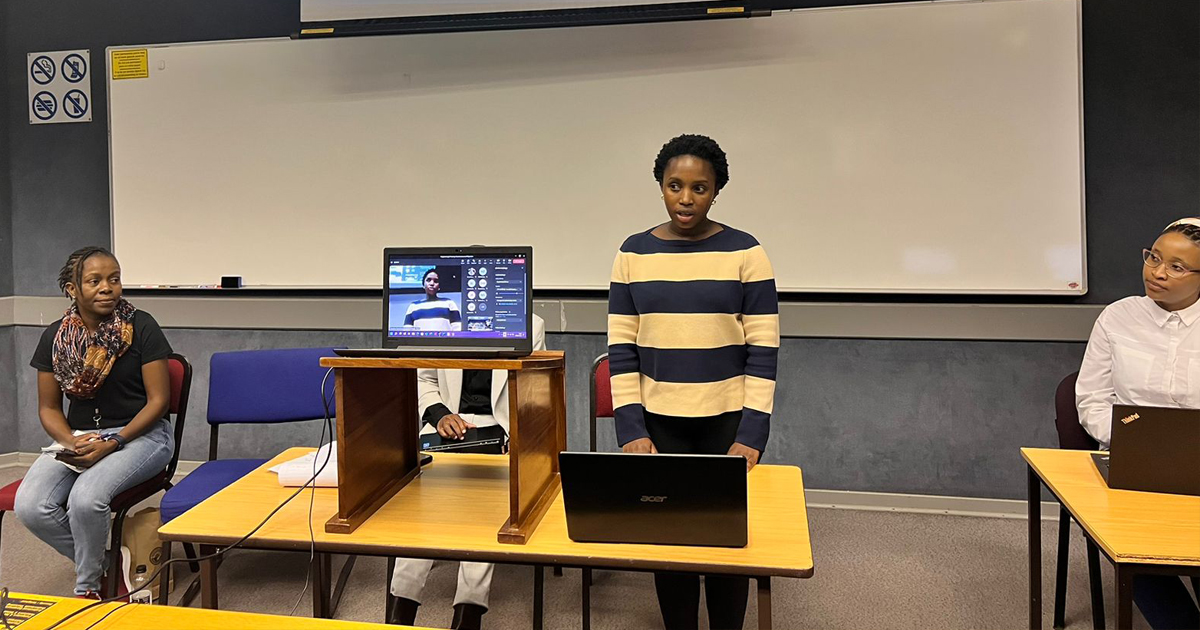In order to develop the knowledge and expertise of lawyers and legal organisations in the region on statelessness and migration in general and in the context of Southern Africa, to equip legal practitioners with skills and tools to identify people affected by statelessness, and to develop practical legal interventions to resolve statelessness, Lawyers for Human Rights (South Africa) in partnership with the Centre for Human Rights and the Centre for Child Law (South Africa) held a hybrid legal training on statelessness and migration for paralegals, candidate attorneys and junior attorneys in Southern Africa on 24 – 26 October 2022 at the University of Pretoria.
The training engaged experts in the field including academia, and rights organisations such as the UNHCR, the Institute on Statelessness and Southern African Nationality Network (SANN).
The first session of the training kick started with a quick quiz on responding to statelessness by Ms Thandeka Chauke from the LHR. This session further introduced an overview of the international and regional legal framework of statelessness, the concept of citizenship and statelessness, the link between statelessness and migration, the causes and consequences of statelessness, vulnerable categories affected by statelessness and how they can be adequately protected.
Other topics covered during the training include the impact of experiencing statelessness in childhood, gaps in nationality laws of states that lead to statelessness, the role of various entities to address statelessness, legal interventions and strategies to assist stateless persons and durable solutions for stateless refugees and asylum seekers. The training further addressed misconceptions of terms by shedding light on the difference between being stateless and undocumented, being stateless and being a refugee, and all the other intersections of migrants in Southern Africa.
Fortunate from the Centre for Child Law spoke on childhood and statelessness. He emphasised the importance of ensuring that children are granted nationality at birth in order to prevent childhood statelessness.
Ms Moyahabo Thoka from the Centre for Child presented on Citizenship Determination Procedures and shared her experience as a practitioner. She also shared best practices on citizenship determination procedures.
Nothando Shongwe from LHR discussed the various international and regional advocacy initiatives to address statelessness such as the UNHCR #IBelong Campaign, UNHCR-UNICEF Coalition on Every Child’s Right to a Nationality and AU #NoNameCampaign and Ms Liesl Muller from the Centre for Child Law spoke on the new Global Network on Statelessness which by 2030 seeks to accelerate solutions to statelessness through a collective multistakeholder approach.
Micheal Nyarko from the Centre for Human Rights provided a brief overview of the nature of submissions that can be made to international and regional human rights mechanisms, with a particular focus on African human rights bodies. He shed light on the various mechanisms available both in international and regional human rights systems which African countries can make use of in addressing concerns relating to statelessness. These include state reporting through which CSOs can make submissions to the African Commission highlighting concerns on statelessness issues in a state.
The training ended with a with a moot court session on the ‘Deprivation of Citizenship’ and the SANN annual meeting. While recognising that Southern Africa has seen an increase in statelessness as a result of migration, discussion in the SANN meeting addressed tools and strategies to strengthen civil society engagement and advocacy for nationality rights in Southern Africa, the meeting also reflected on the state of nationality rights in the region and the continent and the adequacy of laws and policies to address statelessness.

